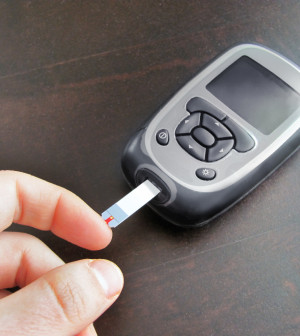- 7 Best Breads for Maintaining Stable Blood Sugar
- Gelatin vs. Collagen: Which is Best for Skin, Nails, and Joints?
- The Long-Term Effects of Daily Turmeric Supplements on Liver Health
- Could Your Grocery Store Meat Be Causing Recurring UTIs?
- Are You Making This Expensive Thermostat Error This Winter?
- Recognizing the Signs of Hypothyroidism
- 10 Strategies to Overcome Insomnia
- Could Artificial Sweeteners Be Aging the Brain Faster?
- Techniques for Soothing Your Nervous System
- Does the Water in Your House Smell Funny? Here’s Why
Americans Support More Funding of Cancer Research


Major advances have been made in the fight against cancer, but Americans aren’t satisfied, a new survey suggests.
In fact, about three-quarters of those polled want more federal funding allocated for cancer research.
The American Association for Cancer Research (AACR) survey found that four out of five voters support the use of taxpayer dollars for cancer research, suggesting federally funded medical research is a bipartisan issue.
Researchers questioned 1,000 registered voters across the United States in July. The findings were released Sept. 16, along with the association’s annual Cancer Progress Report. The report calls for the federal government to provide annual budget increases of at least 7 percent for the U.S. National Institutes of Health, U.S. National Cancer Institute and U.S. Food and Drug Administration in 2016 and beyond.
“The decline in NIH funding that we have seen since 2004 threatens the pace of progress and undermines the promise of cures for patients,” said Dr. Jose Baselga, AACR president and physician-in-chief at Memorial Sloan Kettering Cancer Center, in New York City.
“It is extremely heartening to see from the results of the survey that most American voters have the same message for Congress as the AACR — increasing funding for medical research should be a top national priority,” he said in an association news release.
The report highlights major advancements in cancer research made in recent years. In the United States, the five-year survival rate for all cancers combined increased from 49 percent about four decades ago to 68 percent in 2010.
Meanwhile, the FDA approved nine new anti-cancer treatments and new uses for six existing drugs between August 2014 and July 2015. Also during this time, a cancer prevention vaccine and cancer screening test were approved by the FDA, the report pointed out.
About 85 percent of voters recognize that progress is being made in the fight against cancer, but they also believe more should be done. By a margin of five to one, voters said they would more likely vote for a presidential candidate who supports sustained increases in funding for cancer research.
The survey also revealed 88 percent of Americans know someone who has cancer, and 47 percent have a friend or relative with the disease.
This year, cancer will kill more than 589,000 people in the United States. The direct medical costs related to cancer were nearly $125 billion in 2010, and are expected to jump to $156 billion in 2020, the association says. The number of people of all ages with cancer is also projected to increase from 1.7 million today to 2.4 million by 2035.
Dr. Margaret Foti, chief executive officer of the AACR, said “spectacular progress” has been made against cancer, resulting in millions of lives saved. “However, without increased federal funding for cancer research, we will not be able to realize the promise of recent discoveries and technological advances,” she said in the release.
More information
The U.S. National Cancer Institute provides more information on research in cancer treatment.
Source: HealthDay
Copyright © 2026 HealthDay. All rights reserved.










